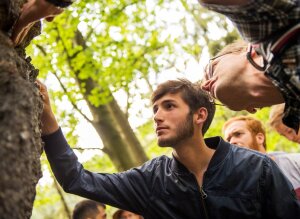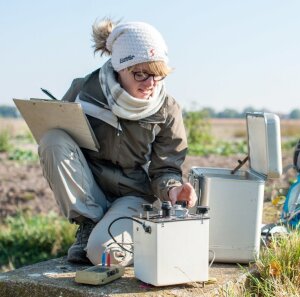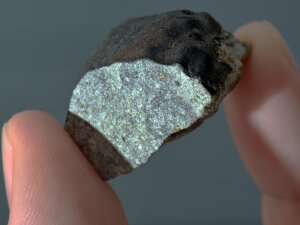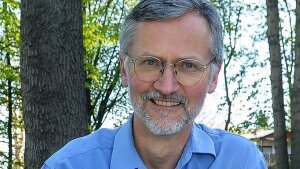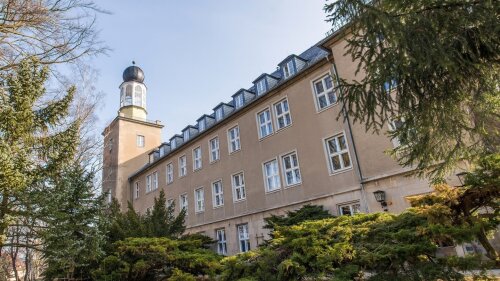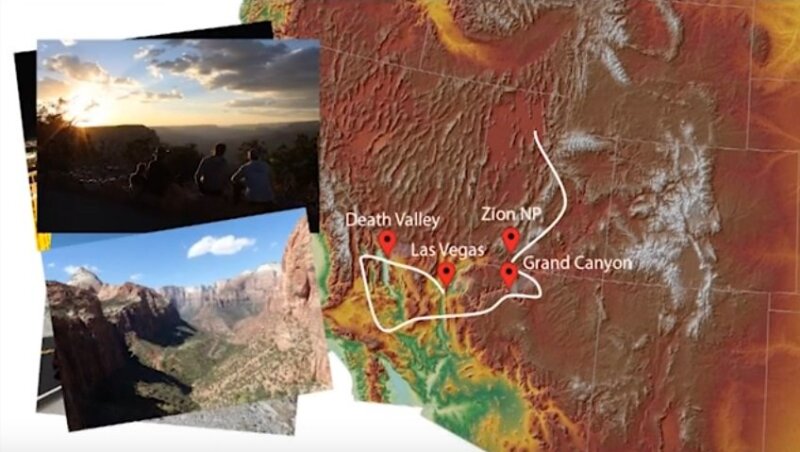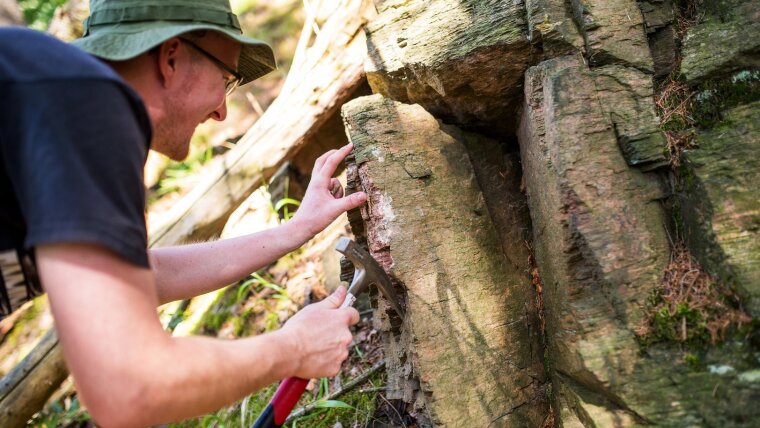
excursion to Erzgebirge
Image: Christoph Worsch (University of Jena)I Geology
The focus of this sub-area is the investigation of the structure, physical properties and history of the earth.
Geology also deals with
- the formation and development of continents and oceans;
- the formation and destruction of mountains; and
- the long-term conservation of soil and water.
field trip
Image: Christoph Worsch (University of Jena)II Geophysics
Geophysics explores the physical properties of the earth, investigating fundamental questions about its geodynamic processes (e.g. plate tectonics, earthquakes). How are these processes driven and why do they emerge?
Another important aspect is the understanding and application of geophysical methods that enable deep insights into the earth.
fragment of a meteorite
Image: Jan-Peter Kasper (University of Jena)III Mineralogy
This sub-area is centred around experiments and analysis, focusing on the formation and properties of rocks and minerals. These investigations provide impetus for the exploration of deposits and the development of technically important solids, such as metals, semiconductors, glass and ceramics, as well as new functional materials that have become an indispensable part of everyday life.
More detailed information can be found in the module catalogue for the study programm [in German].External link
- Close network: You will have lots of opportunities to participate in cutting-edge applied research projectsExternal link thanks to the University’s outstanding laboratory facilities, collaboration with local industry and commerce, and institutions like the Geodynamic Observatory MoxaExternal link, the Seismic Network of ThuringiaExternal link and the Mineralogical Collection de.
- Variety: Thanks to Jena’s location at the heart of Germany, lots of interesting destinations can be included in the study programme. That is why excursions, fieldtrips and internships are often part of the study plan.
- Adventures abroad: You can easily realize your dream of completing a semester abroad during the fifth semester without having to extend your study programme. Our University has a global network of partner universities.
A short film on the Western US excursion taken by students on the master’s programme in ‘Earth Sciences’ in 2018 [in German].
Image: FSU-
University entrance qualification
A university entrance qualification, such as a general secondary school leaving certificate, is required for admission onto the study programme.
More information on university entrance qualifications can be found here.
-
Language requirements
The study programme is taught in German. You must therefore have a very good command of German at the start of the study programme.
Proficiency in English is required; students must submit evidence of their language skills (except German—see above) when registering the subject of their bachelor’s thesis at the latest.
Room H310
Burgweg 11
07749 Jena
Google Maps site planExternal link
Humboldtstraße 11
07743 Jena
Google Maps site planExternal link
University Main Building / SSZ
Fürstengraben 1
07743 Jena
Google Maps site planExternal link
Office hours:
We offer consultations in person, by telephone, and via Zoom. You can make an appointment by calling us on +49 3641 9-411111 (Mondays to Fridays from 9:00 to 11:00) or outside these office hours on +49 3641 9-411200. You can also use our remote help desk.
Consultation hours:
Mondays, Tuesdays, Thursdays and Fridays (9:00 to 12:20), Tuesdays (14:00 to 18:00), and Wednesdays and Thursdays (14:00 to 16:00).
Video chat: To the video chat – Zoom Videochat ZeitenMondays to Fridays (12:30 to 13:00) Password ZSB2020 Data protection informationpdf, 101 kb
University Main Building, Room E065
Fürstengraben 1
07743 Jena
Google Maps site planExternal link
Opening hours:
Information Desk (UHG; Room E0.65)
Mondays (10:00 – 12:00)
Tuesdays (13:00 – 15:00)
Wednesdays (10:00 – 12:00)
Thursdays (13:00 – 15:00)
Fridays (10:00 – 12:00)
You can also use our remote help desk at
www.uni-jena.de/service-ssz
or send us your enquiries by post.
Telephone hours:
Mondays to Fridays
(9:00 – 11:00)
Postal address:
Friedrich-Schiller-Universität Jena
Studierenden-Service-Zentrum
07737 Jena
